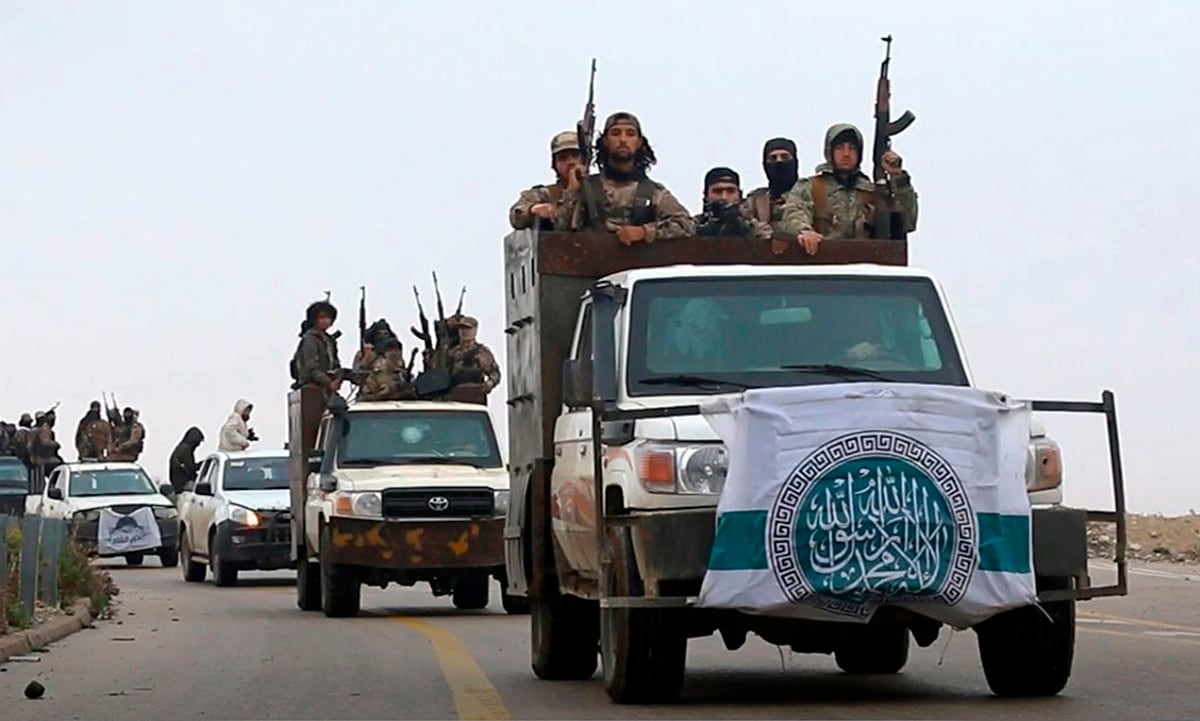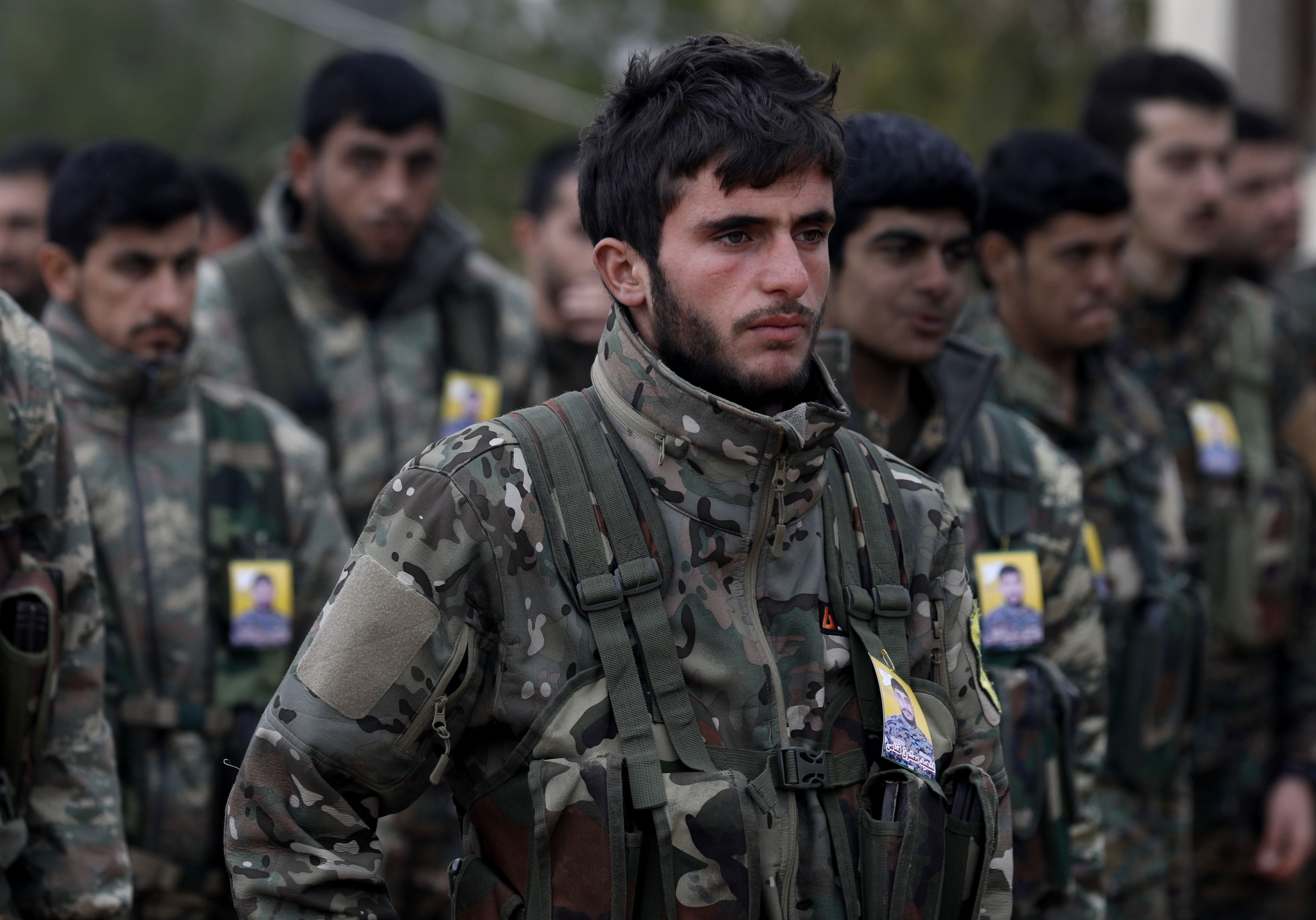WASHINGTON — A day after President Donald Trump defended plans to pull troops from Syria in his State of the Union address, a top Pentagon official said a withdrawal would make the military less effective against the Islamic State group and that he didn’t understand the strategic thinking behind it.
Owen West, the assistant defense secretary for special operations/low-intensity conflict, and Air Force Maj. Gen. Jim Hecker, the Joint Staff’s vice director for operations, detailed the tightrope Pentagon planners are walking as they work to defeat ISIS, safely withdraw U.S. troops, keep pressure on the militant group to prevent a resurgence and protect Kurdish allies from Turkey.
Rep. Seth Moulton, D-Mass., asked West if former Defense Secretary Jim Mattis — who resigned over a disagreement with Trump’s plan for the Syria withdrawal — was wrong. West said only: “No, sir.”
Mattis' resignation letter in December took aim at Trump’s past criticism of foreign allies and his decision to withdraw U.S. troops from Syria in the months ahead. Senior officials in the Defense Department, which has about 2,000 troops stationed in and around Syria, have claimed progress against ISIS but repeatedly warned in congressional testimony that too rapid a withdrawal could lead to regional instability.
RELATED

Asked by House Armed Services Committee Chairman Adam Smith, D-Wash., to explain the strategic rationale behind the withdrawal, which Trump announced on Twitter in December, West said: “Sir, I do not know the strategic thinking that went into it."
“I know that we’ve been given an order to deliberately withdraw,” West said, adding that U.S. forces “do not need to be co-located to keep the pressure on the enemy.”
While officials said plans were underway to conduct “remote” advise-and-assist operations, they acknowledged the mission would be tougher and that there would be less pressure on ISIS as a result.
Hecker said the U.S. needs to work with the Syrian Democratic Forces, Iraq, Jordan or Turkey, to keep up the pressure, but — when pressed by Moulton — he acknowledged: “There will be a decrease in the amount of pressure we will be able to supply.”
West echoed that assessment amid questions from Rep. Michael Waltz, a special forces combat veteran and a freshman Florida Republican.
“Congressman, it is much more effective to be co-located with your partners,” West said. “Militarily, we will be less effective.”
The hearing came the day after Trump railed against “endless wars” in his annual State of the Union address, making the case for drawing down the number of American troops fighting overseas and boosting up those deployed along the southern U.S. border.
Trump, in his address, insisted that coalition forces “have liberated virtually all of that territory from the grip of these bloodthirsty monsters,” echoing his recent comments declaring victory in the Syria fight.
“Now, as we work with our allies to destroy the remnants of ISIS, it is time to give our brave warriors in Syria a warm welcome home,” he said.
RELATED

The position has both attracted and alienated lawmakers from both parties, highlighted when the Senate passed a Middle East policy bill Tuesday that urged Trump not to precipitously withdraw troops from Syria and Afghanistan. It passed with broad bipartisan support, 77-23.
After Wednesday’s hearing, the HASC’s top Republican, Rep. Mac Thornberry, R-Texas, reiterated to reporters his disagreement with the president and credited military leaders with trying to minimize the risks “that ISIS could spring back to life.”
“[Trump] said last night he wants to bring the troops home, and obviously it’s a desire to end a mission, to reduce the exposure that they could be hurt and hope to pass off the supporting part to somebody else, so it’s understandable” Thornberry said, adding that the withdrawal comes with increased risks.
“My statements have been pretty open that I think it’s a mistake,” Thornberry added, “but the president is the one who’s the commander in chief, and he has to evaluate the increased risks to terrorists versus the risk to troops.”
Joe Gould was the senior Pentagon reporter for Defense News, covering the intersection of national security policy, politics and the defense industry. He had previously served as Congress reporter.







